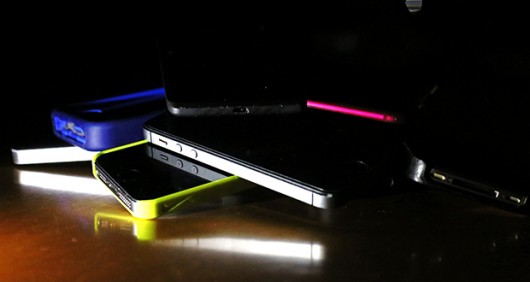As smartphones get smarter, people are constantly upgrading to the newest forms of technology, which can ultimately result in usable devices going to waste.
That result in turn led to the launch of an effort to collect and recycle the valuable technology inside old or broken devices that would otherwise end up in the trash.
Sprint invited young visionaries and engineers to develop strategies to reuse pre-owned smartphones in new and innovative ways for the company’s first Smartphone Encore Challenge, and a team of two Ohio State students have made it to the final eight with their proposal.
As part of the competition, participants were given two smartphones. Using these smartphones, they were tasked with developing a business solution, which included a product concept, marketing plan and the option to create a promotional video.
Sreekanth Krishnakumar and Santiago Lopera are first-year MBA students at the Fisher College of Business. As Team Buckeye Green Solutions, they have developed a business model to repurpose old smartphones into a form of in-car technology that can help track driving habits.
According to the business model developed by Krishnakumar and Lopera, these devices can help insurance companies track the driving of their clients, and reward safe drivers with lower rates, providing further incentive to drive more carefully.
Krishnakumar is a mechanical engineer interested in working with operational efficiency, improvisation and innovative uses of technology who has returned to OSU to pursue his MBA. He said these devices can inform drivers 30 years old and younger — the population currently paying the highest insurance premiums — about their driving habits and the benefits of making responsible choices behind the wheel.
“When (Sreekanth) presented the idea to me to participate in the challenge, it was fun in the beginning, and became very interesting from the business perspective,” said Lopera, a process engineer interested in supply chain management and sustainable development, who has returned to OSU to pursue his MBA. “But if the idea proves to be a feasible idea both financially and technology-wise, we can go even further into working and implementing the plan.”
The goal of the challenge was to “showcase just how lucrative it is to get your hands on some of these older devices that people just write off and tuck it in the drawer,” said Darren Beck, the director of environmental initiatives at Sprint. “People forget exactly how rich these devices are with capabilities, features and functionality.”
The winner of the challenge will be announced on Wednesday, which is Earth Day, and will receive $5,000, which can be used to take their business plan to Startup Weekend, an event by Google for entrepreneurs to present their ideas to experts and potential backers.
Beck said the competition is important because it shows how someone can take a piece of technology and use it to create something entirely new, instead of throwing it away.
“What we’re trying to do is help the market as whole,” he said. “These are really business opportunities if you can go in and find a way to innovatively and profitably upcycle these devices into something they maybe weren’t used as in the first place.”



![Ohio Gov. Mike DeWine signed Senate Bill 1 — a higher education overhaul bill — into law Friday. [Ohio Gov. Mike DeWine speaks at the State of the State address in Columbus. Credit: Joshua Gunter via TNS]](https://www.thelantern.com/files/2025/03/20250204-AMX-US-NEWS-DEWINE-BUDGET-INCREASES-TAXES-FOR-1-PLD-384x253.jpg)